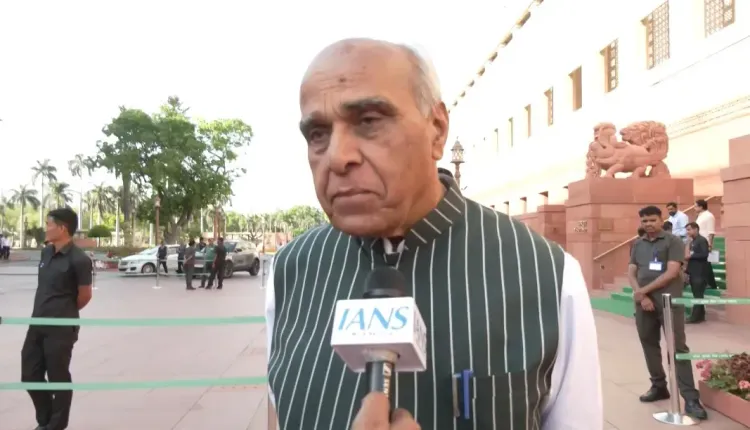Waqf Reform Legislation Promises Transparency and Digital Management

Synopsis
Key Takeaways
- Waqf (Amendment) Bill aims for transparency.
- All properties to be digitized via WAMSI.
- Focus on benefits for women and the poor.
- Concerns from opposition parties addressed.
- Legislation builds on previous amendments.
New Delhi, April 2 (NationPress) Jagdambika Pal, Chairman of the Joint Parliamentary Committee (JPC) on the Waqf (Amendment) Bill, expressed on Wednesday that the proposed legislation, introduced in the Lok Sabha, is expected to pass soon and will foster transparency.
He further indicated that in the near future, all properties across the nation will be digitized, with registrations overseen via the Waqf Management System of India (WAMSI) portal.
In a conversation with IANS, Jagdambika Pal remarked: "There was a period when Waqf properties were believed to benefit the designated beneficiaries, but that was not the reality. Women and children did not genuinely profit from Waqf income, especially regarding education. Today, we are addressing this in a transparent manner, which is currently under discussion and is set to be approved. In the future, all properties in the nation will be digitized, registrations will occur through the WAMSI portal, and audits will be executed. This will guarantee that the underprivileged and women gain from Waqf income.
Pal also responded to the concerns raised by the Samajwadi Party, Congress, and AIMIM, who asserted that the Waqf Bill could result in the loss of Muslim properties.
"(Union Minister) Kiren Rijiju clarified when presenting the bill that this legislation is not designed for that purpose. The modifications made, including the elimination of 'Waqf by user', are applicable only prospectively, not retrospectively. It is evident that mosques and khanqahs will remain unaffected," he stated.
Earlier on Wednesday, Parliamentary Affairs Minister Rijiju introduced the Waqf (Amendment) Bill in the Lok Sabha amid protests and slogans from the Opposition.
A lengthy eight-hour discussion on the bill is presently in progress, with the Opposition accusing the government of 'bulldozing the legislation' and denying sufficient time for amendments, as the bill was brought forth without prior notification to the House.
The Waqf (Amendment) Bill is designed to amend the Waqf Act of 1995 to tackle contemporary challenges and enhance the management of Waqf properties in India. It aims to simplify the responsibilities of the Waqf Board, ensuring more effective administration of these properties.
This legislation builds upon the 2024 Waqf (Amendment) Bill and the Mussalman Waqf (Repeal) Bill, both introduced with comparable aims to improve the operations of the Waqf Board and resolve ongoing management challenges.








